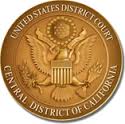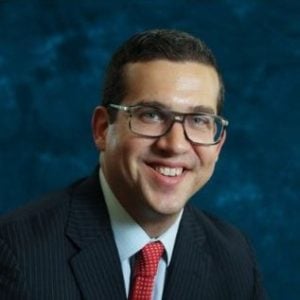 In a decision filed in the U.S. District Court for the Central District of California, U.S. District Judge John Walter ruled in favor of the Consumer Financial Protection Bureau when he determined that the Californian online loan platform CashCall Inc. was the “true lender” behind the transactions in question — not Western Sky Financial, an online tribal lender in South Dakota, according to the WSJ. Western Sky, now folded, had argued to claim federal exemption from state laws because it was based on an Indian reservation and owned by a tribal member. The CFPB argued that Western Sky’s loans were in fact being made to consumers online in various states, not on the res.
In a decision filed in the U.S. District Court for the Central District of California, U.S. District Judge John Walter ruled in favor of the Consumer Financial Protection Bureau when he determined that the Californian online loan platform CashCall Inc. was the “true lender” behind the transactions in question — not Western Sky Financial, an online tribal lender in South Dakota, according to the WSJ. Western Sky, now folded, had argued to claim federal exemption from state laws because it was based on an Indian reservation and owned by a tribal member. The CFPB argued that Western Sky’s loans were in fact being made to consumers online in various states, not on the res.
Judge Walter determined that CashCall, founded by CEO J. Paul Reddam in 2003, bore the risk when it serviced the loans and consequently is subject to all of the state laws in the states where it did business, including licensing requirements, any cap on interest rates and restrictions on collecting debt from consumers, reported the WSJ.
“The Court concludes that the entire monetary burden and risk of the loan program was placed on CashCall, such that CashCall, and not Western Sky, had the predominant economic interest in the loans and was the ‘true lender’ and real party in interest,” Judge Walter ruled.
The CFPB has yet to name the penalty amount. But will the CashCall decision affect marketplace lenders? Though the case started with a debate on tribal lending, the decision could affect marketplace lenders that teamed up with banks assuming they could bypass state licensing and other restrictions in getting the same federal pre-emption as the bank receives, industry lawyers told the WSJ.
“This definitely raises a lot of issues for the industry because if you’re deemed to be the ‘true lender’ and aren’t licensed in the state where loans were issued, some of those loans could be void and you won’t be able to collect payments on them,” Joseph Rodriguez, a former regional counsel in fair lending at the CFPB who is now a partner at Davis Wright Tremaine LLP indicated to the WSJ. “I can definitely see a wave of litigation coming from borrowers who don’t want to make a repayment and can challenge whether the marketplace lender can legally collect.”


 “This definitely raises a lot of issues for the industry because if you’re deemed to be the ‘true lender’ and aren’t licensed in the state where loans were issued, some of those loans could be void and you won’t be able to collect payments on them,”
“This definitely raises a lot of issues for the industry because if you’re deemed to be the ‘true lender’ and aren’t licensed in the state where loans were issued, some of those loans could be void and you won’t be able to collect payments on them,”